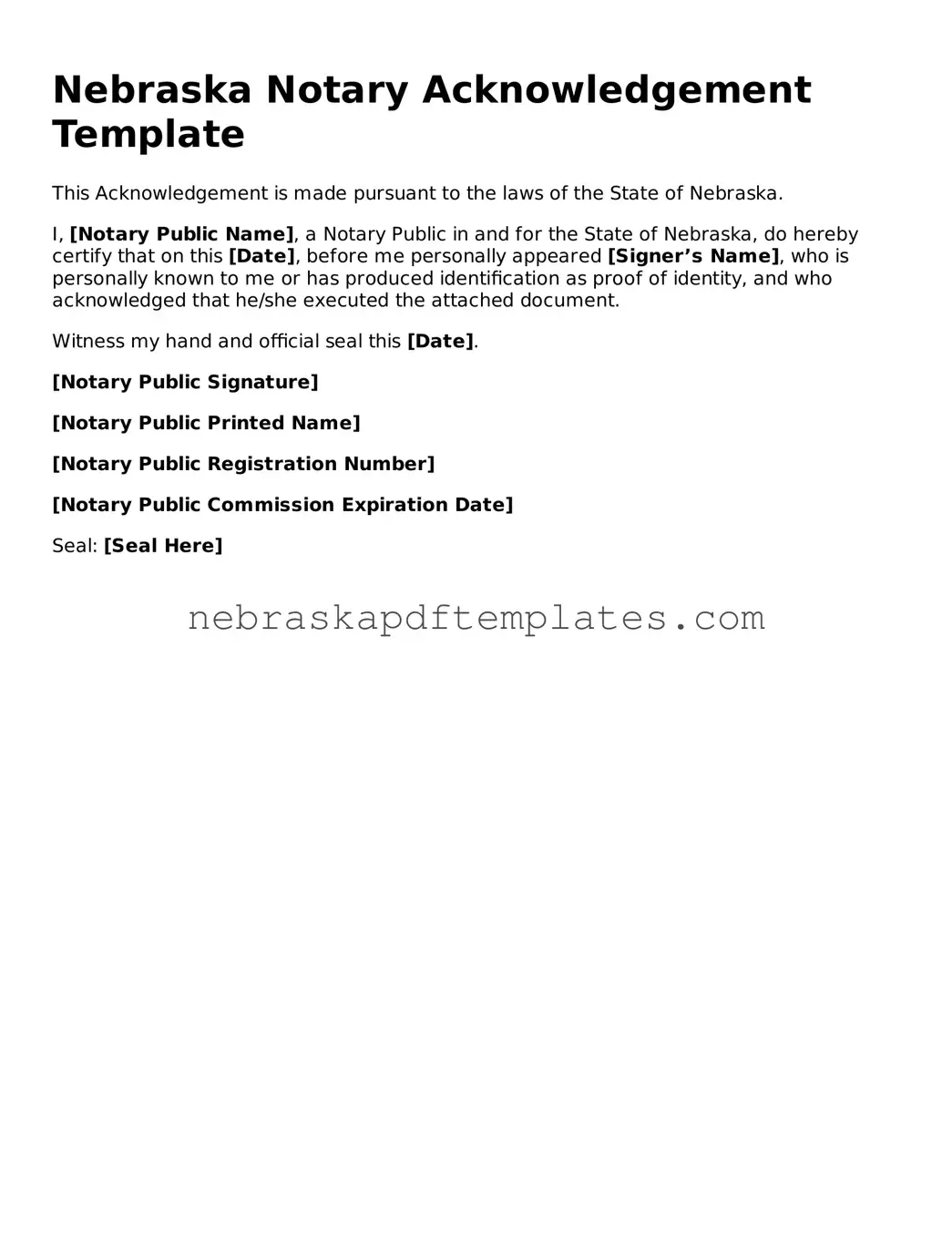The Nebraska Notary Acknowledgement form is a document that verifies the identity of the signer and confirms that they willingly signed a particular document. This form is essential in ensuring that the signing process is legitimate and that the signer's intentions are clear. It is commonly used in various legal and financial transactions, such as real estate deals, contracts, and other agreements requiring notarization.
Why is a Notary Acknowledgement necessary?
A Notary Acknowledgement serves several important purposes:
-
Verification of Identity:
It helps confirm that the individual signing the document is indeed who they claim to be.
-
Willingness to Sign:
The form ensures that the signer is doing so voluntarily, without any coercion.
-
Legal Validity:
Many institutions and legal processes require notarized documents to be considered valid and enforceable.
Completing the form is straightforward. Follow these steps:
-
Begin by filling in the name of the person signing the document.
-
Provide the date of the signing.
-
The notary public will then witness the signing and fill in their information, including their name, signature, and seal.
-
Ensure that all required information is accurate and legible.
After completion, the document is ready for submission or filing as needed.
Who can serve as a notary public in Nebraska?
In Nebraska, notaries public must meet specific criteria to serve in this capacity. Generally, the requirements include:
-
Being at least 19 years old.
-
Being a resident of Nebraska or a resident of a bordering state who works in Nebraska.
-
Having no felony convictions or disqualifying misdemeanors.
Once these criteria are met, individuals can apply to become a notary public through the Nebraska Secretary of State's office.
What happens if I don’t use a Notary Acknowledgement when required?
Failing to use a Notary Acknowledgement when necessary can lead to various complications. The document may be deemed invalid or unenforceable, which could result in:
-
Legal disputes over the authenticity of the signature.
-
Challenges in executing contracts or agreements.
-
Inability to complete transactions, such as property transfers.
To avoid these issues, it is crucial to ensure that a Notary Acknowledgement is included whenever required.

